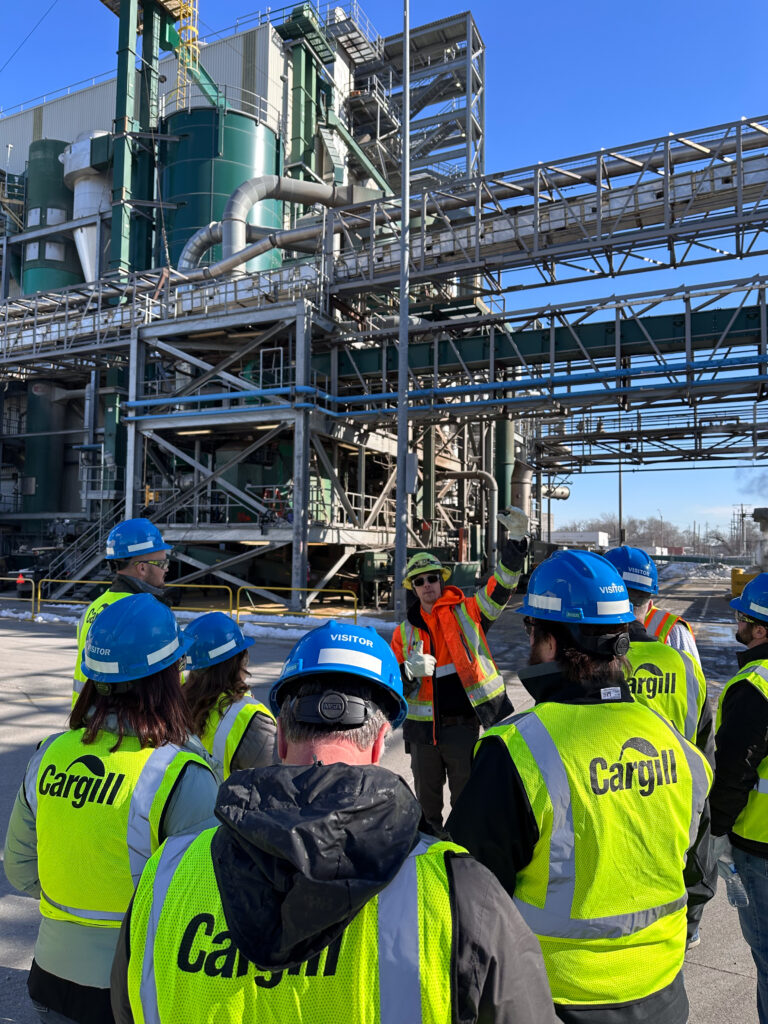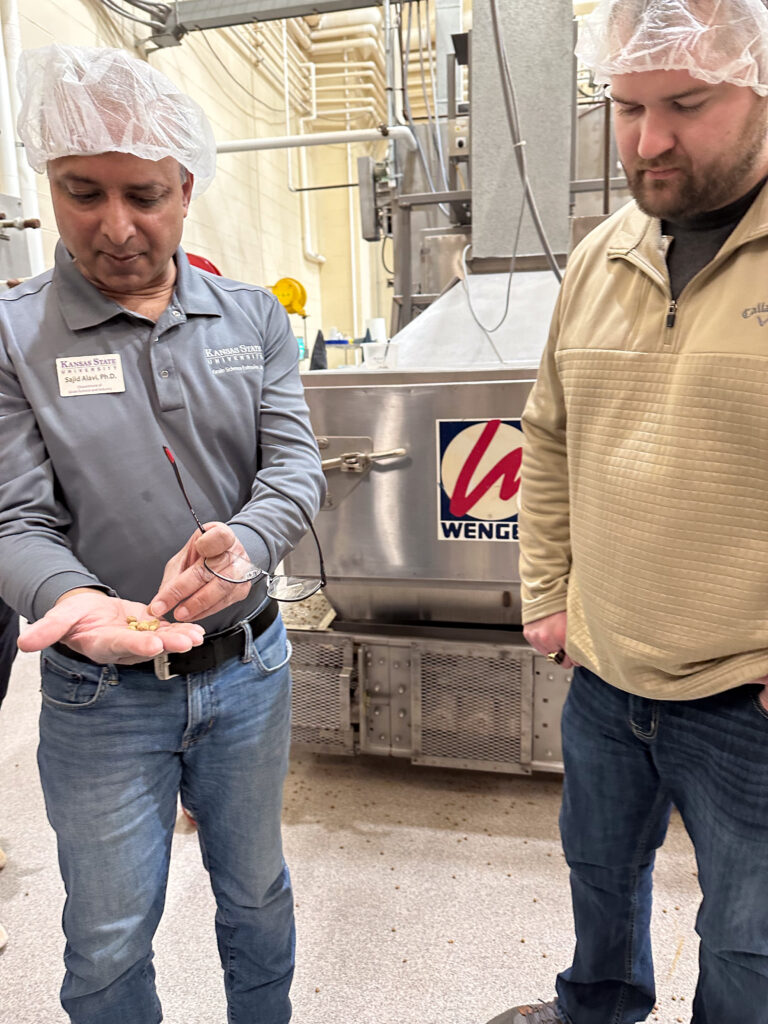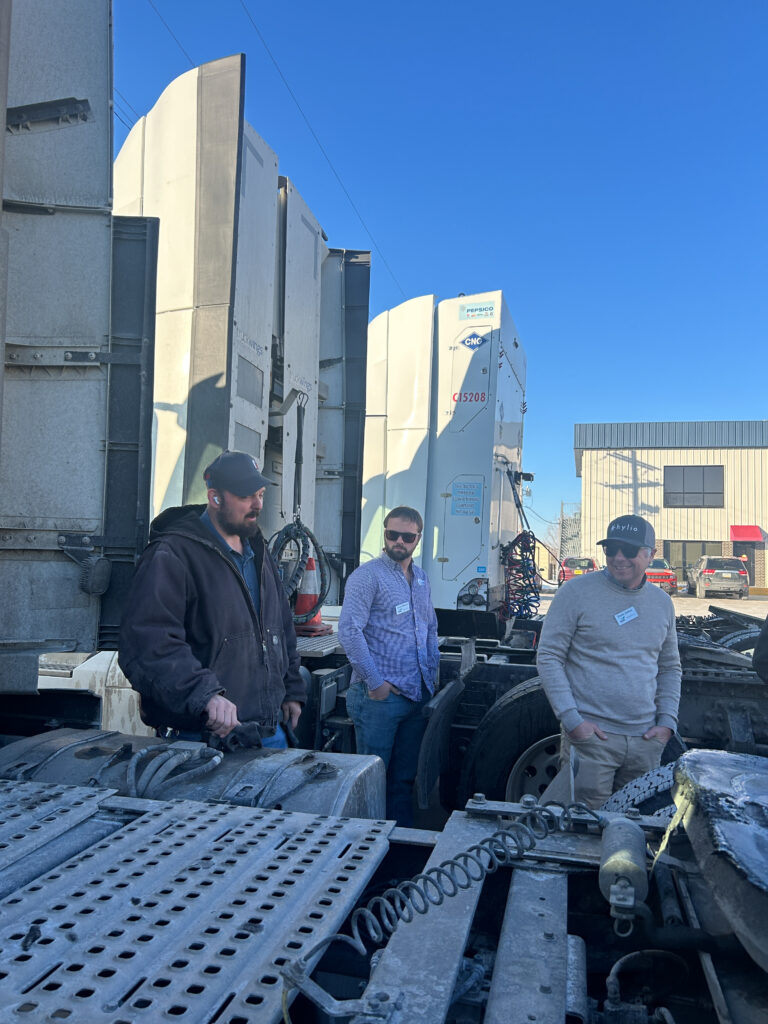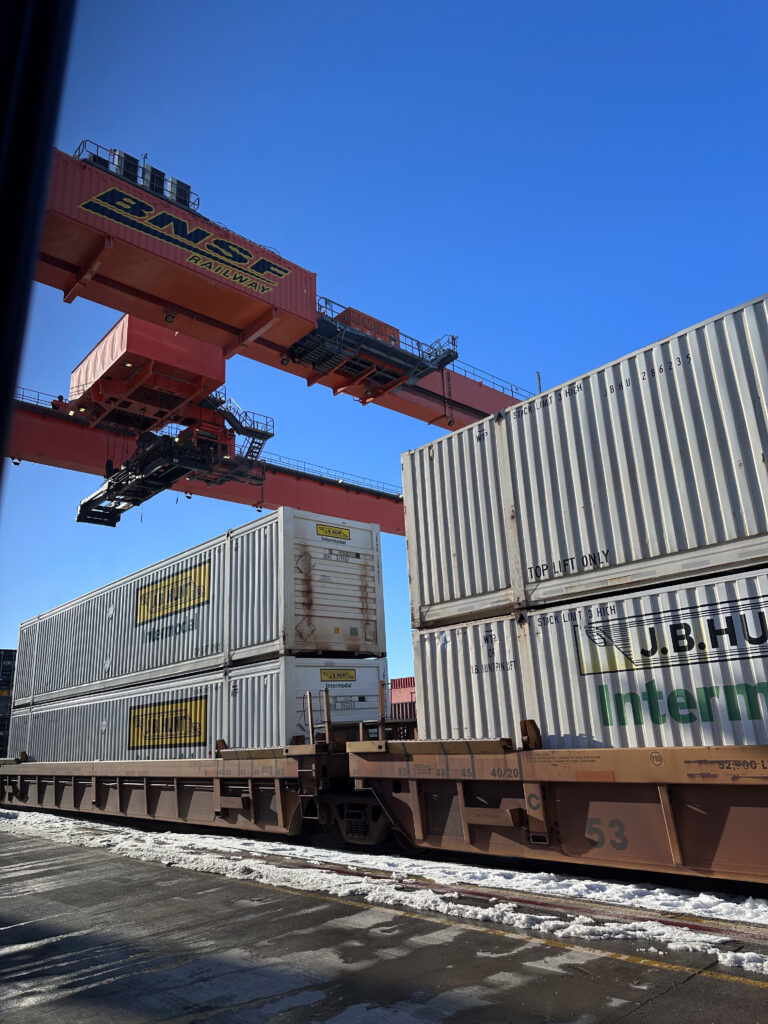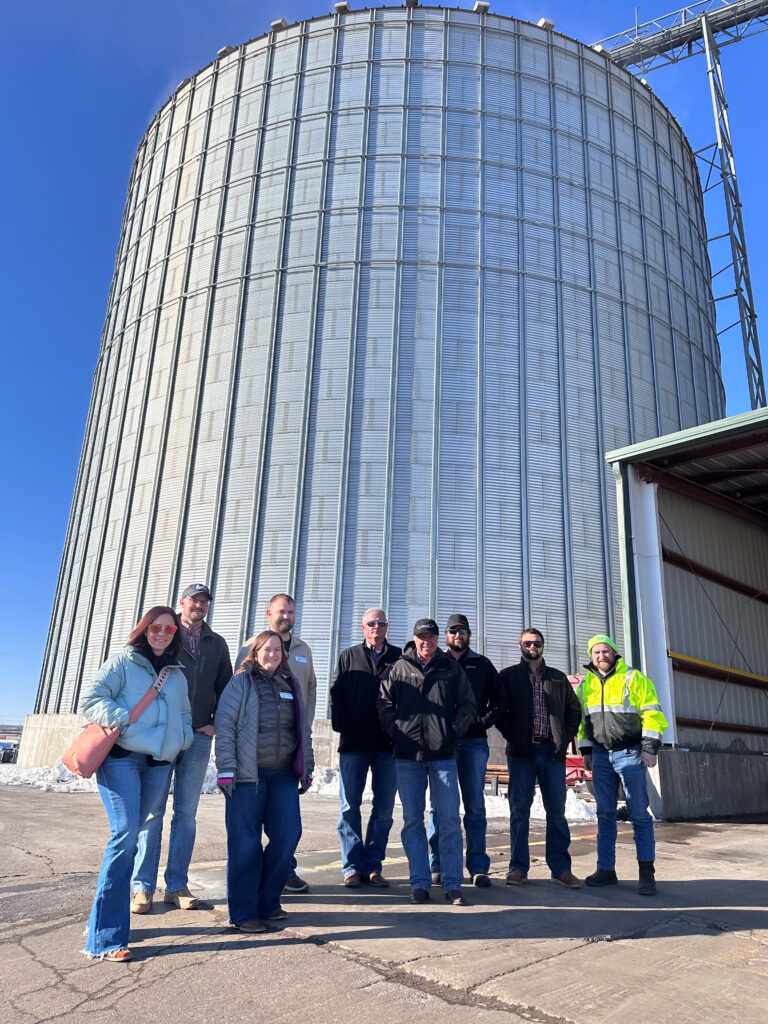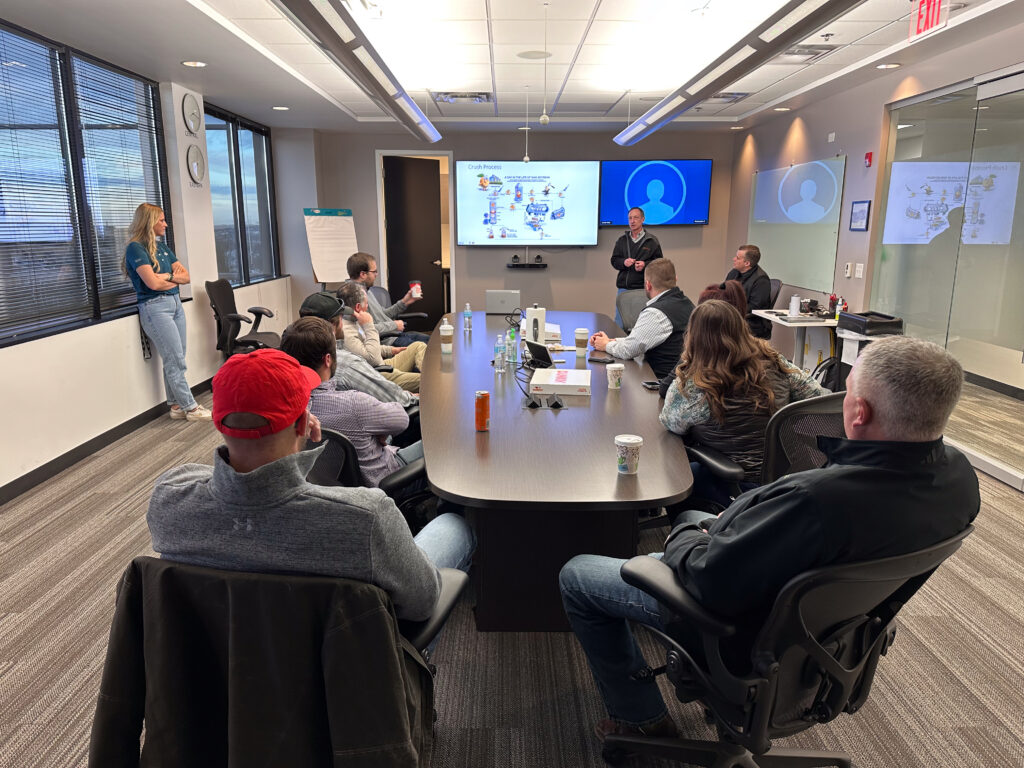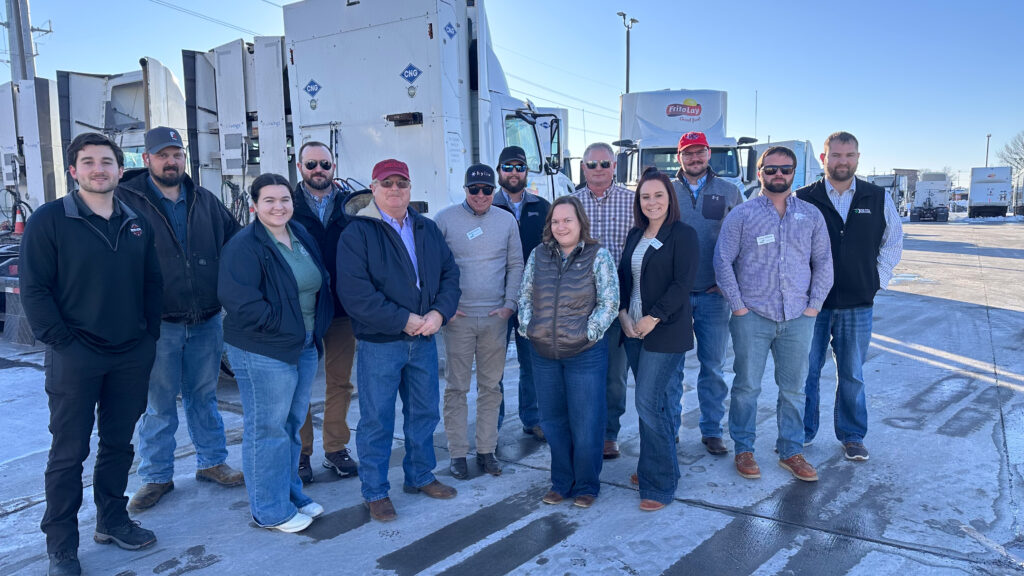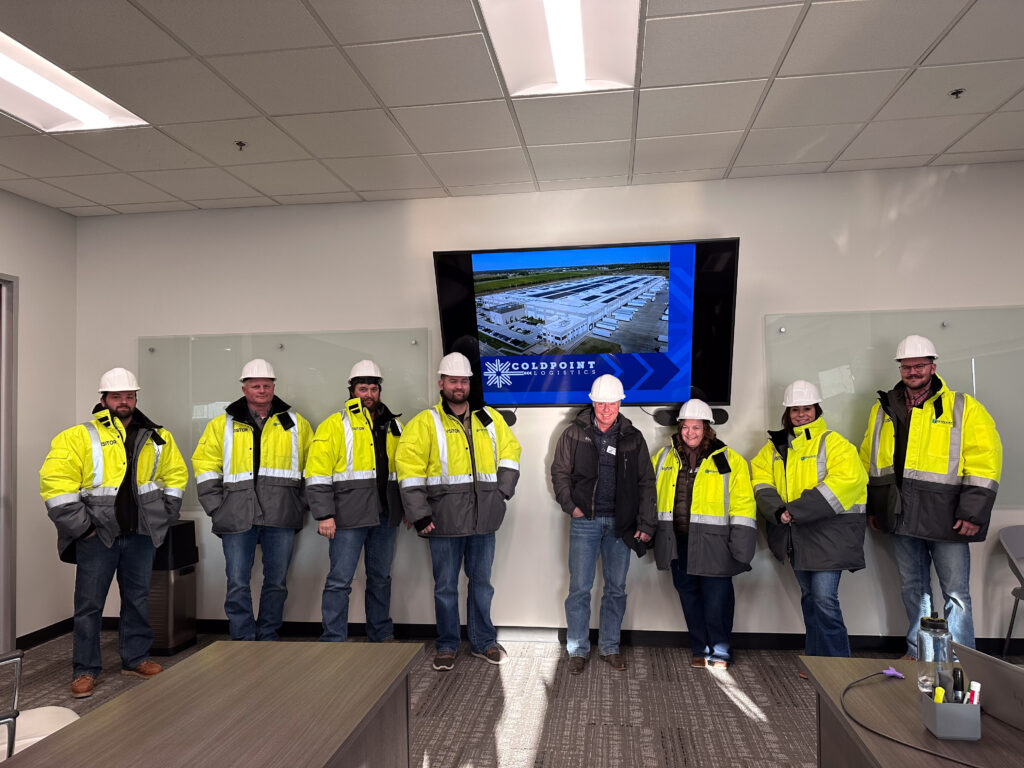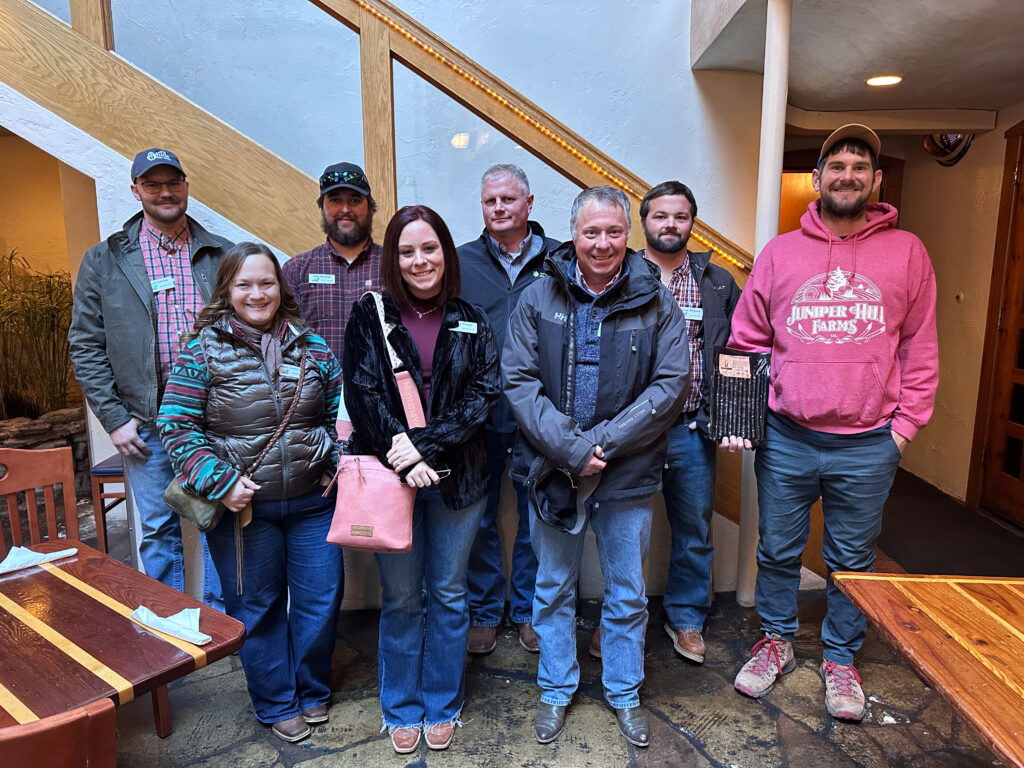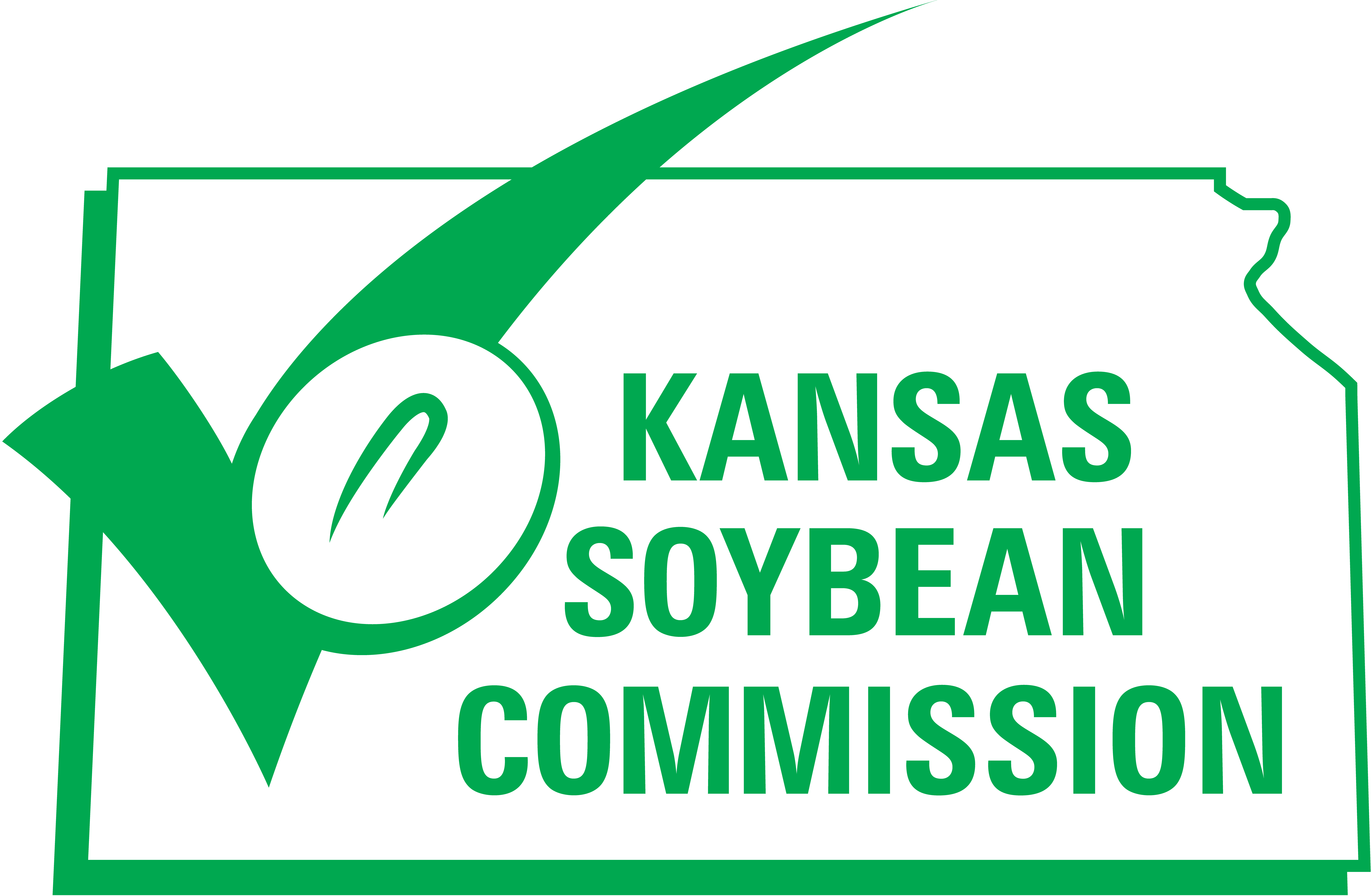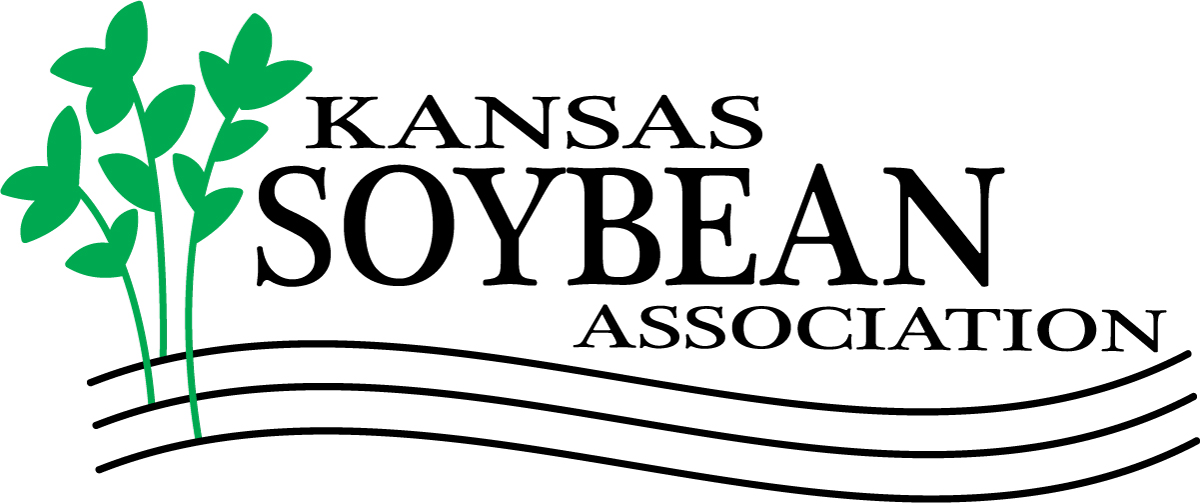Emerging Leaders explore soybean industry logistics
In the ever-important pursuit of ensuring agriculture has a bright future, Kansas Soybean prioritizes the development of ready leaders. The eighth class of Kansas Soybean’s Emerging Leaders Academy embarked on a tour of various companies in the state January 14-16 to further hone understanding of soybeans after they leave the field. The experience marked Phase II of the program which allows participants to observe segments of the soybean and broader agricultural industry in action.
Nine stops customized to meet participants’ interests covered logistics, manufacturing, biodiesel, international market development and other facets of soybeans.
- Juniper Hill Farms, Lawrence, Kan.: Operates in the local and organic vegetable market and distribution space. Participants met Scotty Thellman in Lawrence to discuss farm diversification and niche agricultural production opportunities and challenges.
- The DeLong Co., Inc.; Edgerton, Kan.: Loads grain container shipments primarily for rail transport. Participants visited loading docks and conversed with manager Sam Hanni about the processes in place at the facility.
- BNSF Railway; Edgerton, Kan.: Primarily sends loads north to Chicago and west to California. Participants met with trainmaster Wess Parsons to discuss the systems employed by the railway.
- ColdPoint Logistics; Edgerton, Kan.: Distributes cooled and frozen food products, including margarine produced in Kansas. Participants toured the facility to learn about its operations and domestic reach.
- Cargill; Kansas City, Mo.: Crushes up to 200 thousand bushels of soybeans per day at its Kansas City facility that are shipped out for various end use markets. Participants met with grain merchandisers, grain originators, and crush plant operators to gain a wholistic understanding of Cargill operations and the crushing process.
- Frito Lay/PepsiCo; Topeka, Kan.: Utilizes soybeans in various points in its process. Participants first toured the Frito Lay chip food manufacturing facility. Then, the class had the opportunity to speak with PepsiCo fleet managers about the company’s environmental goals that have led to 65 trucks utilizing 99 percent biodiesel. The trucks utilize about 7,000 gallons of biodiesel per week.
- Kansas State University; Manhattan, Kan.: Researches soybean production tactics for a better soybean crop. Participants dined with six researchers to share their own on-farm experiences and anticipated crop developments.
- IGP Institute; Manhattan, Kan.: Connects soybean growers and buyers across the world and offers technical training in more than 100 countries. Participants conversed with Carlos Campabadal and Guy Allen to gain understanding of international work happening for the benefit of soybean growers.
- Bio-processing and Industrial Value-Added Products; Manhattan, Kan.: Extrudes grains for various food, feed and industrial purposes. Dr. Sajid Alavi, K-State department of grain science, welcomed participants to BIVAP to showcase the extruding technology used in pet food and forms of soy protein.
While it is impossible to track the end point for every single soybean grown in Kansas state lines, the crop is transported by various means then utilized to feed and fuel the world. Understanding these industry logistics illustrates the value of the soybean checkoff and its work to optimize each step of the soybean process.
The Emerging Leaders Academy is a program from the Kansas Soybean Commission and Kansas Soybean Association that builds awareness of these distinct soybean organizations and the soybean industry at large while developing leadership, professionalism and communication skills in Kansas agriculturists.
The program continues in February with Phase III when participants travel to New Orleans, Louisiana, to grasp the global impact of Kansas soybeans and agriculture.
